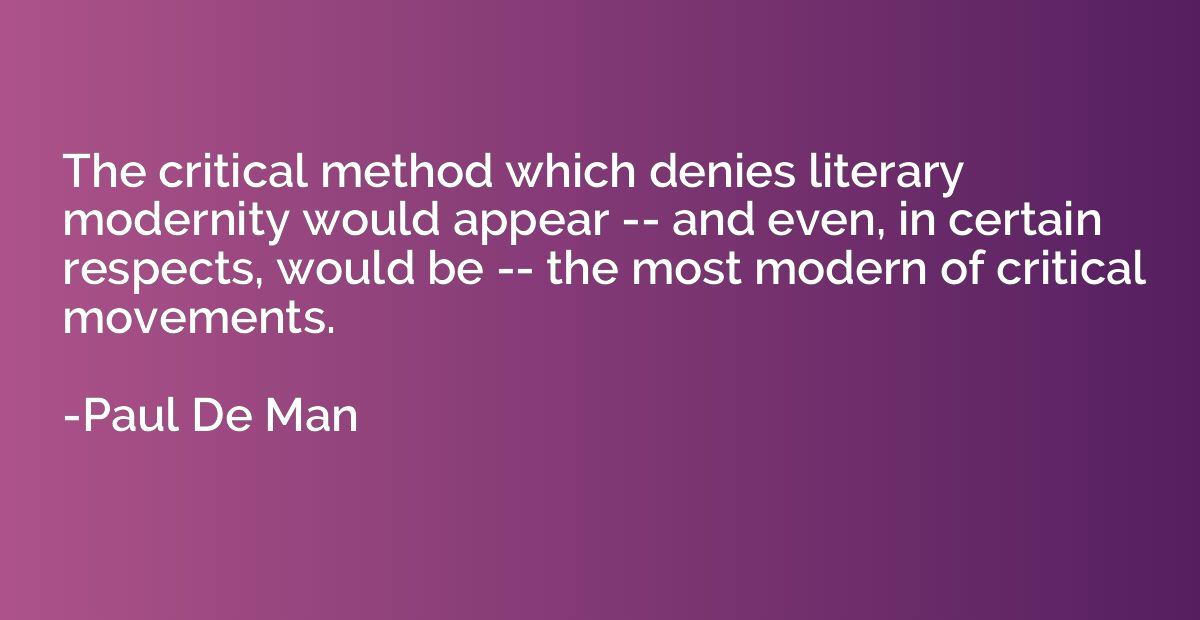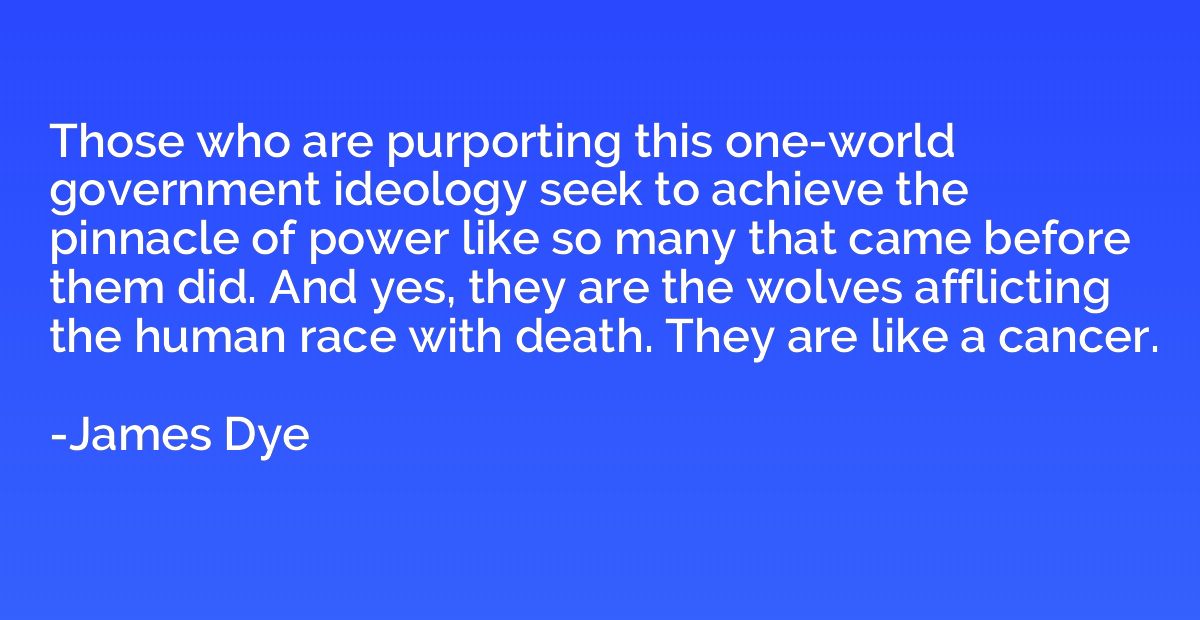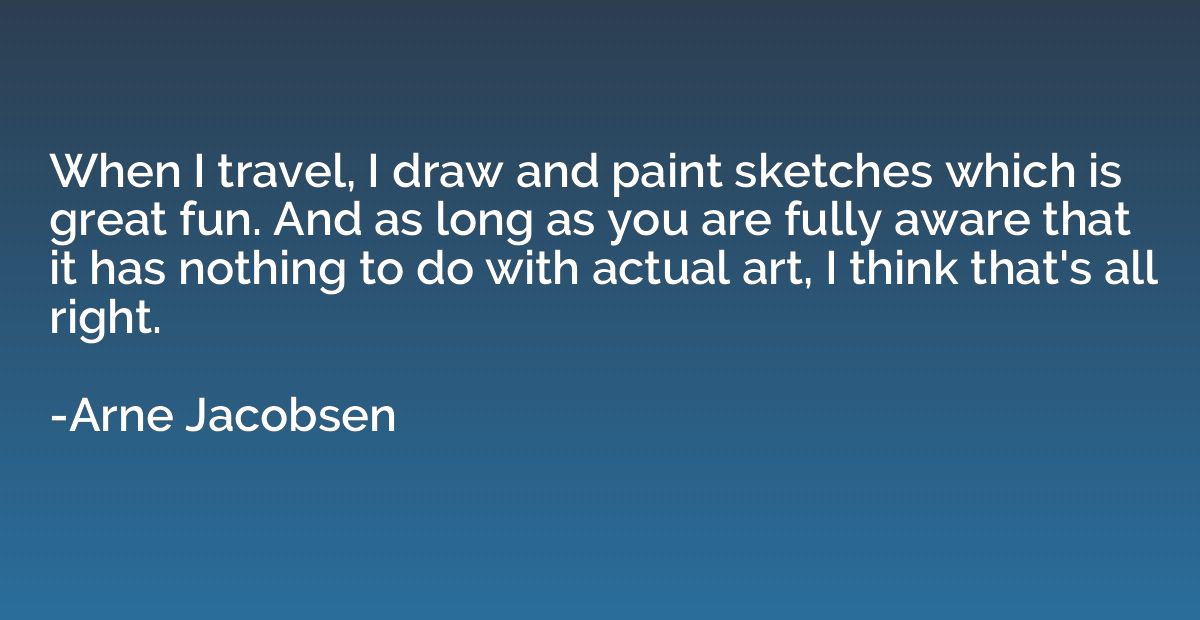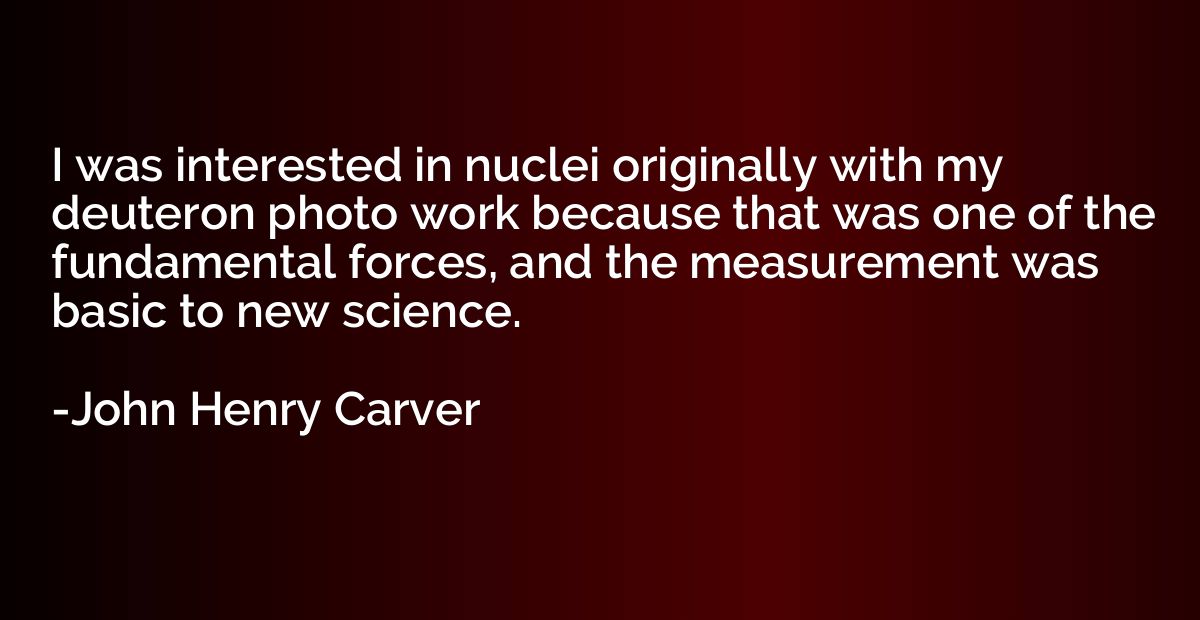Quote by Paul De Man
The critical method which denies literary modernity would appear -- and even, in certain respects, would be -- the most modern of critical movements.

Summary
This quote suggests that the critical method that rejects or denies the idea of literary modernity may actually be the most modern approach itself. It implies that by challenging established notions of modernity in literature, this critical movement can push the boundaries of what is considered modern and pave the way for new and innovative perspectives. In essence, the quote emphasizes the paradoxical nature of a critique that is both rooted in tradition yet ironically progressive in its rejection of conventional ideas.
Topics
Criticism
By Paul De Man














